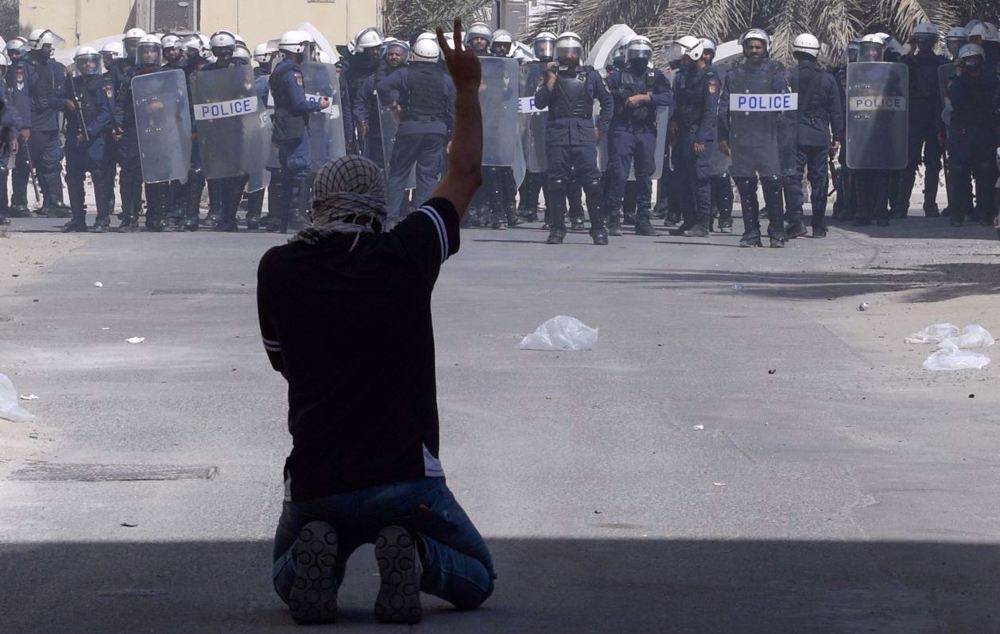AhlulBayt News Agency: Bahrain has lost a bid to block a spyware lawsuit lodged in the UK by British-Bahraini dissidents.
London’s Court of Appeal ruled that Bahrain cannot claim state immunity in a legal case filed in Britain by two dissidents.
The two dissidents lodged a complaint against Manama, claiming its agents hacked their laptops with spyware.
Saeed Shehabi and Moosa Mohammed said Bahraini agents infected their computers in around 2011 with espionage software called FinSpy.
They said the software used by the agents against them gave the Bahraini government access to monitor their work with political prisoners incarcerated in the Persian Gulf kingdom.
The two men, who brought the case against Manama and both live in Britain, are seeking damage for the “psychiatric harm” done to them by the kingdom’s forces.
Manama, which denies the hacking charges, has made two efforts to block the case by claiming immunity.
The first bid to claim immunity was rejected last year by the UK High Court.
The second bid, attempted in the London Court of Appeal, was also rejected on the grounds that the espionage activities had taken place on British soil where Manama agents lack jurisdiction.
Judge Stephen Males said in a written ruling on Friday that “a foreign state which hacks a computer located in the United Kingdom interferes with the territorial sovereignty of the United Kingdom even if some of the acts in question take place abroad.”
Shehabi and Mohammed voiced satisfaction with the court ruling, seeing themselves as victorious against Manama.
“This is victory for freedom, justice and the rule of law,” Shehabi said in a statement.
Mohammed added, “This is our second victory, and it will send a clear message – not just to the Bahraini regime, but to any government that spies on dissidents on British soil.”
However, a Bahraini spokesperson denied any wrongdoings on behalf of Manama.
“We maintain that the allegations are baseless,” the spokesperson said, insisting that the final ruling was yet to come.
“The matter is still before the English courts, and no final decision has been reached, so it would be inappropriate to comment further at this time.”
The US-backed kingdom has been facing a nationwide uprising since 2011. Protesters want the Al Khalifah regime to step down.
Regular protests and mass rallies held by dissidents are subdued through the regime’s security forces brutal crackdown.
Local and international human rights groups have repeatedly criticized Manama over its unlawful practices and inhumane behavior toward dissidents and political inmates.
Bahraini political prisoners locked up at the Jau Prison, the country’s biggest jail, have reported systematic abuse, harsh punitive measures, religious discrimination, and the weaponization of healthcare against political prisoners.
Inmates revealed that Bahraini prison officials had even put restrictions on their access to food and water, prohibiting prisoners from taking certain meals in the day and preventing them from drinking tea.
Prisoners’ rights advocates say the dire conditions in Bahrain demand immediate attention and action by the international community.
/129
London’s Court of Appeal ruled that Bahrain cannot claim state immunity in a legal case filed in Britain by two dissidents.
The two dissidents lodged a complaint against Manama, claiming its agents hacked their laptops with spyware.
Saeed Shehabi and Moosa Mohammed said Bahraini agents infected their computers in around 2011 with espionage software called FinSpy.
They said the software used by the agents against them gave the Bahraini government access to monitor their work with political prisoners incarcerated in the Persian Gulf kingdom.
The two men, who brought the case against Manama and both live in Britain, are seeking damage for the “psychiatric harm” done to them by the kingdom’s forces.
Manama, which denies the hacking charges, has made two efforts to block the case by claiming immunity.
The first bid to claim immunity was rejected last year by the UK High Court.
The second bid, attempted in the London Court of Appeal, was also rejected on the grounds that the espionage activities had taken place on British soil where Manama agents lack jurisdiction.
Judge Stephen Males said in a written ruling on Friday that “a foreign state which hacks a computer located in the United Kingdom interferes with the territorial sovereignty of the United Kingdom even if some of the acts in question take place abroad.”
Shehabi and Mohammed voiced satisfaction with the court ruling, seeing themselves as victorious against Manama.
“This is victory for freedom, justice and the rule of law,” Shehabi said in a statement.
Mohammed added, “This is our second victory, and it will send a clear message – not just to the Bahraini regime, but to any government that spies on dissidents on British soil.”
However, a Bahraini spokesperson denied any wrongdoings on behalf of Manama.
“We maintain that the allegations are baseless,” the spokesperson said, insisting that the final ruling was yet to come.
“The matter is still before the English courts, and no final decision has been reached, so it would be inappropriate to comment further at this time.”
The US-backed kingdom has been facing a nationwide uprising since 2011. Protesters want the Al Khalifah regime to step down.
Regular protests and mass rallies held by dissidents are subdued through the regime’s security forces brutal crackdown.
Local and international human rights groups have repeatedly criticized Manama over its unlawful practices and inhumane behavior toward dissidents and political inmates.
Bahraini political prisoners locked up at the Jau Prison, the country’s biggest jail, have reported systematic abuse, harsh punitive measures, religious discrimination, and the weaponization of healthcare against political prisoners.
Inmates revealed that Bahraini prison officials had even put restrictions on their access to food and water, prohibiting prisoners from taking certain meals in the day and preventing them from drinking tea.
Prisoners’ rights advocates say the dire conditions in Bahrain demand immediate attention and action by the international community.
/129

